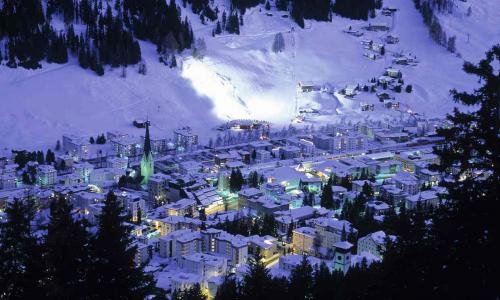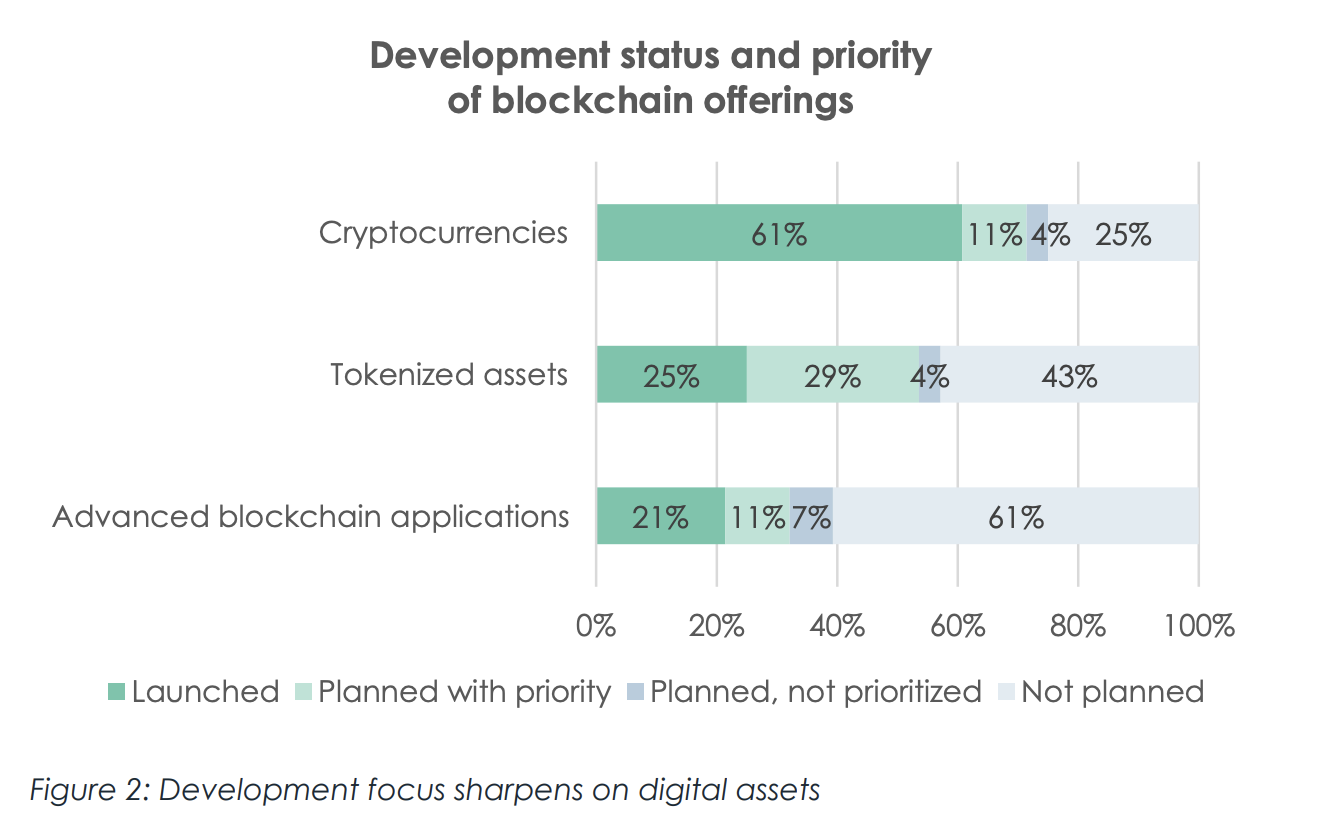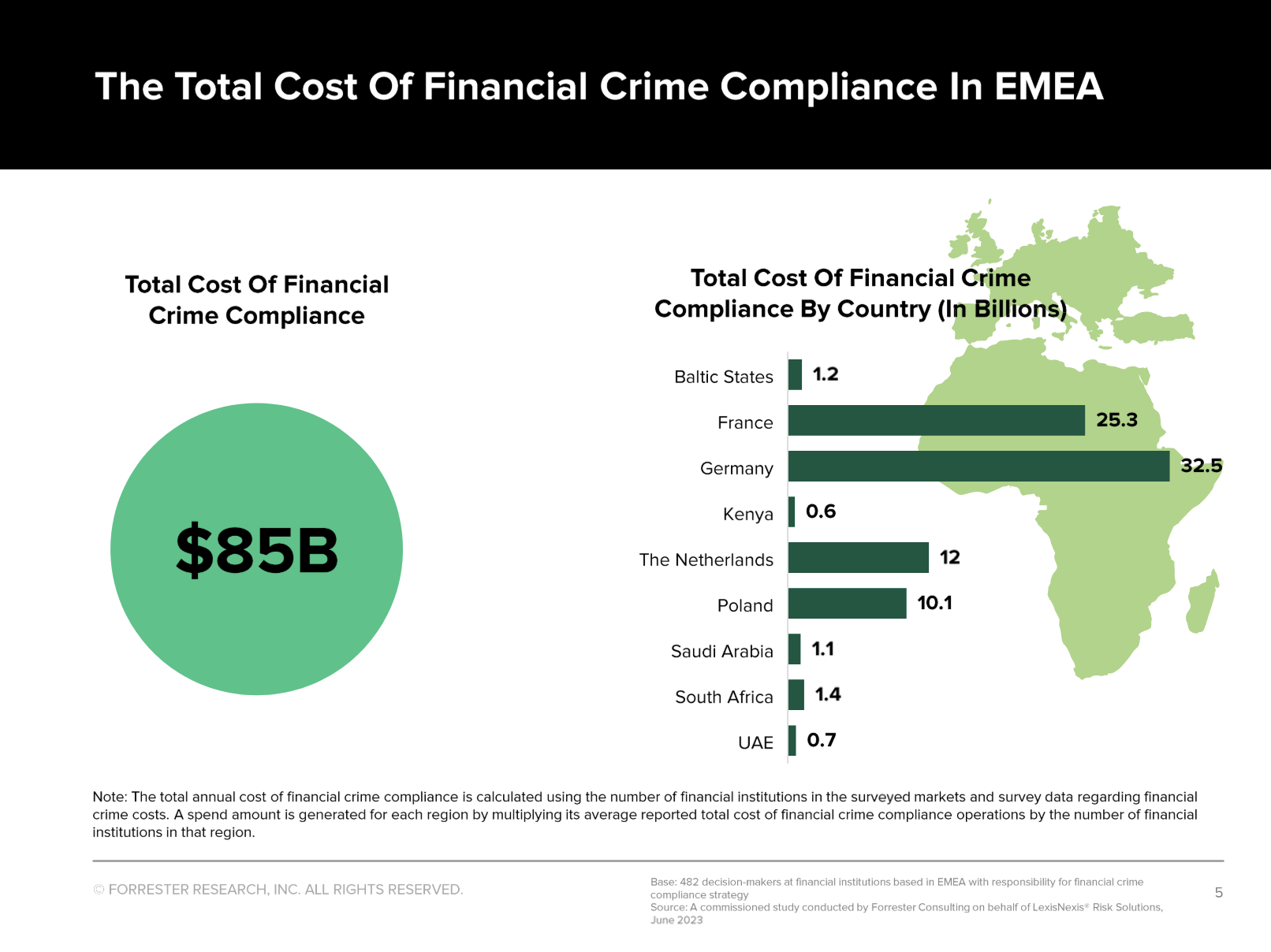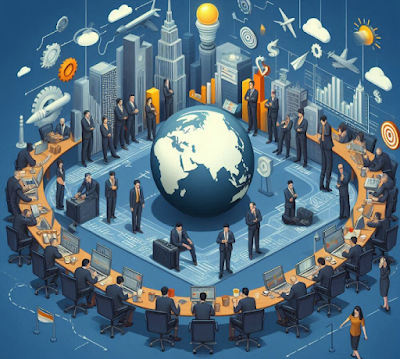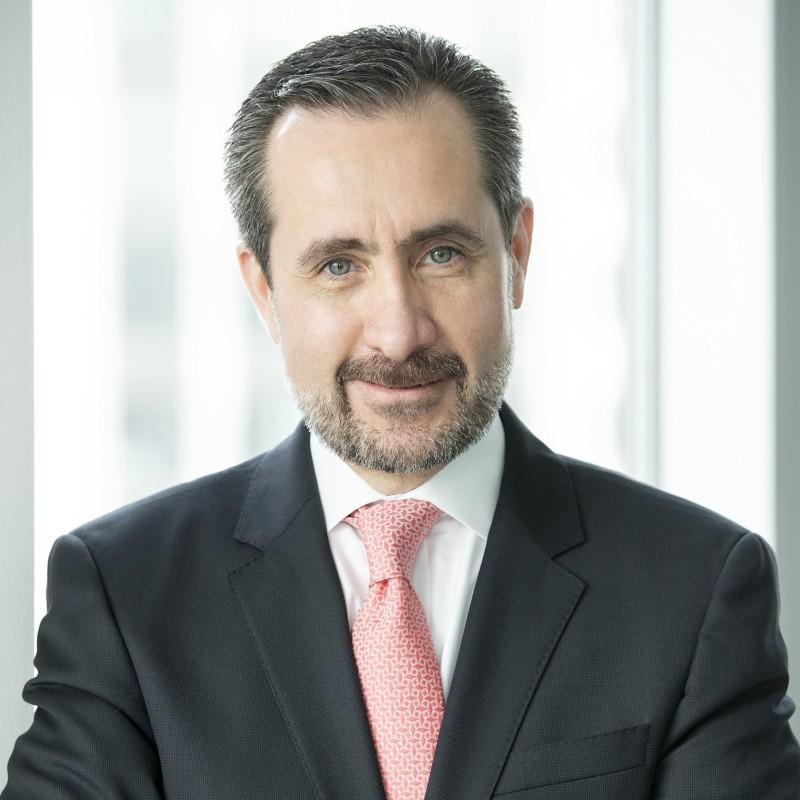For those unfamiliar with what goes on at the annual January boondoggle at the World Economic Forum in Davos, here is the simple breakdown.
Officially, heads of state, captains of industry, prominent academics, philanthropists and a retinue of journalists, celebrities and hangers-on will descend Tuesday on the picturesque alpine village of Davos, Switzerland, for the World Economic Forum.
Unofficially, it’s the world’s biggest echo chamber, where wealthy, influential and/or powerful people, yet vastly out of touch with the rest of the world, sit down with other wealthy, influential and/or powerful people who are just as out of touch, to validate to each other that nobody really knows anything (also known as the “ratings agency effect”), but because the press is there and fails to point out that these emperors of industry, commerce, entertainment and politics are naked in hopes of maintaining their annual invitation and direct access, everyone goes home happy. And just as clueless.
Hence Trump.
Case in point, as Reuters fondly recalls, last year, the consensus here was that Trump had no chance of being elected (actually, last January the world’s elites were far more worried about plunging markets as we pointed out in “How Billionaires Are Investing In 2016: “The Only Winning Move Is Not To Play The Game“).
Trump was elected. His victory, less than half a year after Britain voted to leave the European Union, “was a slap at the principles that elites in Davos have long held dear, from globalization and free trade to multilateralism.”
We’ll get to Trump in a second, but first some more on the background of this festival which revels in everything the populist backlash of 2016 found excerable, courtesy of the NYT.
Who Attends the Conference?
More than 2,500 people will attend this year’s conference from 90 different countries, paying up to $50,000 per person to attend (that of course excludes the ultra-celebrities who get in for free). In fact, so many people are attending, some of the local staff may sleep in shipping containers. Most of the participants are corporate executives, but more than two dozen heads of state and government are expected to attend. Theresa May, the prime minister of Britain, and Xi Jinping, president of China, are attending the conference for the first time this year. Xi is the first Chinese president to attend the event, and will also be the star attraction. His presence is being seen as a sign of Beijing’s growing weight in the world at a time when Trump is promising a more insular, “America first” approach and Europe is pre-occupied with its own troubles, from Brexit to terrorism.
On the other hand, Trump has decided not to officially send a member of his team as it would “betray his populist-fueled movement.” Likewise German chancellor Merkel will be absent, worried about her own image ahead of the 2017 German elections.
Aside from politicians, Shakira and the actor Forest Whitaker are to receive awards this year. Expected attendees include Sheryl Sandberg, COO at Facebook; Matt Damon; Formula One driver Nico Rosberg; and Alibaba’s Jack Ma. While only 17% of last year’s participants were women, according to the forum, this year the number is not expected to change.
How Are These People Kept Safe?
All of those dignitaries need security. During the conference, Davos transforms into a fortress. Roadblocks restrict traffic on the city’s main streets and checkpoints spring up outside each venue. At the Congress Center, where the main panels take place, and at each hotel that hosts parties and talks, attendees pass metal detectors, armed guards and beneath the watchful eyes of sharpshooters. In the past, the conference was targeted by protesters associated with the anticapitalist Occupy movement. In 2013, members of the Ukrainian activist group Femen were arrested after a topless demonstration. The Swiss government estimated it will spend 8 million Swiss francs, about $8 million, on security, but said that number could increase if there were a credible threat to the conference. “Switzerland is still not regarded as a priority target for jihadist terrorists,” the Federal Council said on its website. “On the other hand, even on Swiss soil, the interests of states participating in the military coalition against the so-called Islamic State face an increased threat.”
Is It as Elitist as It Sounds?
Yes. The meeting runs on a tiered system of colored badges denoting just how important one is, or is not. White badges are for attendees able to attend any official event and make full use of the forum’s facilities. Orange badges are reserved for the 500 journalists who cover the forum, but are not allowed at some parties. Other badges, like purple ones, denote technical or support staff and limit their holders to a few areas. Local hotels like the Belvedere and the InterContinental often sell their own badges to the bankers and consultants who descend upon Davos to strike deals and chat up clients. These souls camp out at the hotels, renting rooms for business meetings by day and soiree hopping at night.
What About the Parties?
Beyond the boring, ineffective, and circle-jerking lectures and panel discussions, a much more important agenda unfolds after sunset. One notable event, according to the NYT, is a simulation of a refugee’s experience, where Davos attendees crawl on their hands and knees and pretend to flee from advancing armies. It is one of the most popular events every year. The theme of this year’s conference is “Responsive and Responsible Leadership.” But attendees like to play as hard as they work.
There are several official cocktail receptions, but the action really lies in a galaxy of events hosted by corporations. Some are small, intimate dinners that feature the likes of Leonardo DiCaprio and Bono. Others are dazzling affairs worthy of a modern day Gatsby: JPMorgan Chase, for example, has previously taken over the Kirchner Museum Davos for drinks with its chief executive, Jamie Dimon, and Tony Blair, the former British prime minister. Google’s annual party at the InterContinental Hotel has become the hottest ticket in town. The investor Anthony Scaramucci, now an adviser to Donald J. Trump, for years has hosted a reception at the famed Hotel Europe featuring a sometimes eye-popping list of high-end Champagne and Bordeaux red wine. A more recent up-and-comer is hosted by Salesforce.com, a business software maker, whose chief, Marc Benioff, is one of the forum’s most ardent boosters. Last year’s Salesforce party included Mr. Benioff flying in scores of fresh flower leis and a band from Hawaii, as Eric Schmidt of Google and other tech notables danced in a corner. Several years ago, Sean Parker of Napster and Facebook fame, hosted an over-the-top gathering that featured stuffed animal heads shooting laser beams out of their eyes. And the Russian billionaire Oleg Deripaska has thrown opulent gatherings at a nearby villa where the Champagne flowed freely For a nightcap, the Davos crowd traditionally retires to the Tonic Bar at Hotel Europe, sipping cocktails while the forum fixture Barry Colson leads the crowd in Billy Joel singalongs.
* * *
With the background of the event covered, we once again focus on the key topic at hand, namely quite ironic “social and wealth inequality” – which incidentally has been a core topic for the past several years, demonstrating just how clueless Davos really is, and of course Trump.
Just so readers can get a sense of just how delightfully surreal this whole event is, one of the most prominent panels is called “Squeezed and Angry: How to Fix the Middle-Class Crisis”
Its description: “Poor employment prospects and low-income growth in many developed economies have laid the groundwork for the rise of populism. Did policy-makers ignore these trends or do too little to redress them? What can be done to restore growth in the middle class and confidence in the future?”
Who are these experts on the woes of the middle class? Read em and weep: Ray Dalio – a billiionaire who encourages spying on his employees; Christine Lagarde – a convicted criminal and tax evader, head of an organization that takes from the poor and gives to the world’s creditors; and Larry Summers, a firm believer, and doer, in wealth redistribution from the middle classes to the wealthy.
* * *
While in previous years the Davos party was not to be spoiled with any actual concerns about the real world violating the inner sanctum of the world’s uber-poseurs, this year something has changed.
Beneath the veneer of optimism over the economic outlook lurks acute anxiety about an increasingly toxic political climate and a deep sense of uncertainty surrounding the U.S. presidency of Donald Trump, who will be quite symoblically, even if purely accidentally, inaugurated on the final day of the forum.
And with Trump’s election come worries that the ivory towers inhabited by the 2,500 or so Davosites, are far less sturdy than previously believed. “Regardless of how you view Trump and his positions, his election has led to a deep, deep sense of uncertainty and that will cast a long shadow over Davos,” said Jean-Marie Guehenno, CEO of International Crisis Group, a conflict resolution think-tank.
Moises Naim of the Carnegie Endowment for International Peace was even more blunt, suggesting that the people in Davos are even more clueless than usual, which is saying quite a lot.
“There is a consensus that something huge is going on, global and in many respects unprecedented. But we don’t know what the causes are, nor how to deal with it.”
Brilliant.
* * *
Meanwhile, in an attempt to figure out the causes and “how to deal with it”, the participants in the World Economic Forum, which runs from Jan. 17 to 20, will partake in such panels as the abovementioned “Squeezed and Angry: How to Fix the Middle Class Crisis”, “Politics of Fear or Rebellion of the Forgotten?”, “Tolerance at the Tipping Point?” and “The Post-EU Era”.
The central question in Davos, a four-day affair of panel discussions, lunches and cocktail parties that delve into subjects as diverse as terrorism, artificial intelligence and wellness, is whether leaders can agree on the root causes of public anger and begin to articulate a response… aside from the forum participants themselves of course.
A WEF report on global risks released before Davos highlighted “diminishing public trust in institutions” and noted that rebuilding faith in the political process and leaders would be a “difficult task”. Guy Standing, the author of several books on the new “precariat”, a class of people who lack job security and reliable earnings, believes more people are coming around to the idea that free-market capitalism needs to be overhauled, including those that have benefited most from it.
“The mainstream corporate types don’t want Trump and far-right authoritarians,” said Standing, who has been invited to Davos for the first time. “They want a sustainable global economy in which they can do business. More and more of them are sensible enough to realize that they have overreached.”
But Ian Bremmer, president of U.S.-based political risk consultancy Eurasia Group, is not so sure, and he recounted ro Reuters a recent trip to Goldman Sachs headquarters in New York where he saw bankers “rejoicing in the elevators” at the surge in stock markets and the prospect of tax cuts and deregulation under Trump. Both Goldman CEO Lloyd Blankfein and his JP Morgan counterpart Jamie Dimon will be in Davos.
It remains to be seen if there will be as much “elevator rejoicing” when the market finally crashes under Trump, an inevitable outcome which some speculate is precisely why Trump was allowed to become president: so that all the blame on the grand crash, once it, happens can be placed on him.
Others are less worried about the impact of Trump, and more concerned that the pace of technological change and the integrated, complex nature of the global economy have made it more difficult for leaders to shape and control events, let alone reconfigure the global system. The global financial crisis of 2008/9 and the migrant crisis of 2015/16 exposed the impotence of politicians, deepening public disillusion and pushing people towards populists who offered simple explanations and solutions.
The problem, says Ian Goldin, an expert on globalization and development at the University of Oxford, is that on many of the most important issues, from climate change to financial regulation, only multilateral cooperation can deliver results. And this is precisely what the populists reject. “The state of global politics is worse than it’s been in a long time,” said Goldin. “At a time when we need more coordination to tackle issues like climate change and other systemic risks, we are getting more and more insular.”
* * *
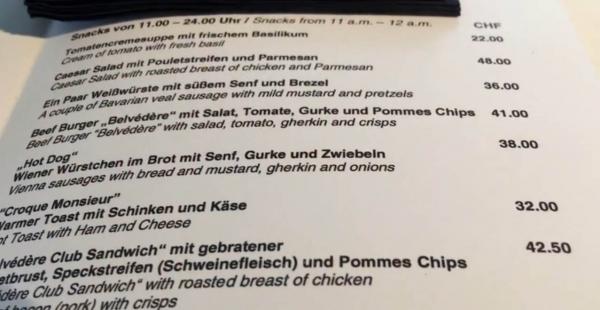 Whatever the reason, sense of dread that things are moving, changing beyond the participants’ control will be all too tangible.
Whatever the reason, sense of dread that things are moving, changing beyond the participants’ control will be all too tangible.
It is also why, as Bloomberg reported today, the World Economic Forum will convene a special meeting in Washington this year to discuss issues raised during the president-elect’s campaign “and the populist wave that swept him to victory” WEF founder Klaus Schwab told Bloomberg Television on Sunday. The gathering will explore U.S. investment and job-creation opportunities for companies that participate in the forum, he said.
“It’s very natural that with the new administration we plan a major event in the U.S. to see what are the implications of the new president and how the business community could engage,” Schwab said in advance of the forum’s 47th annual meeting in the Swiss ski resort of Davos. “We have to be responsive to the call.”
“People have become very emotionalized, this silent fear of what the new world will bring,” Schwab said in the town’s hulking conference center. “We have populists here and we want to listen. We have to respond to these individuals’ fears and to offer solutions. It’s not just enough to listen; we have to provide answers and that’s what were here for in Davos.”
No, that’s what you were there for in Davos in 2013, 2014, 2015 and 2016, and you did nothing. Now it’s too late as the pendulum has already swung.
That, however, is not obvious to the forum organizers who will enjoy another blockbuster year. Business is booming for the WEF and Schwab, 78, said he has no plans to abandon or alter its annual retreat. Revenue is up 45% in the past five years and staff have increased by about a third – with employees earning an average of 135,000 Swiss francs, ($133,875) which rises to 213,000 Swiss francs with the addition of costs such as pensions and healthcare.
“Our salary structure is completely in line with others such as the Bretton Woods organization, the World Bank or the International Monetary Fund,” Schwab said. “We also have to be competitive with organizations like Goldman Sachs and McKinsey. We are competing for the same talent.”
How does Schwab reconcile the glaring hypocricy of the world’s wealthiest debating social injustice and wealth inequality? Simple:
Despite the glitzy parties that have become the hallmark of the annual gathering, Schwab said his aim is not to celebrate the “outrageous excesses of life,” but rather to create a “global village,” where participants can mull weighty issues facing the world without the distractions of a large city. And he insists that as the power and beliefs of business and political leaders face unprecedented challenges, the meeting is needed more than ever.
 Schwab says the WEF’s annual meeting, where companies host lavish parties awash in champagne and rare vintage wines, attendees pay $50,000 and thousands of soldiers and police stand guard, remains an appropriate forum to discuss political issues like the rise of populism and seek solutions to society’s biggest problems. Unfortunately, that’s all it is, as no concrete, revolutionary decisions can ever take place within the confines of this giant echo chamber.
Schwab says the WEF’s annual meeting, where companies host lavish parties awash in champagne and rare vintage wines, attendees pay $50,000 and thousands of soldiers and police stand guard, remains an appropriate forum to discuss political issues like the rise of populism and seek solutions to society’s biggest problems. Unfortunately, that’s all it is, as no concrete, revolutionary decisions can ever take place within the confines of this giant echo chamber.
Schwab concludes by saying that “the right solution will require a lot of effort and many steps in the right direction. I am optimistic that in a new multi-polar world we still have the notion of a joined and shared destiny” but adds that his “biggest fear is that we will believe there are very simple answers to very difficult questions.”
Actually, herr Klaus Schwab, there are other far more tangible things you and your peers should be afraid of, but somehow we doubt that those will become apparent while eating $40 hot dogs.
Full story here Are you the author? Previous post See more for Next post
Tags: Bretton Woods,Business,China,creditors,Davos,Donald Trump,economy,European Union,Global Economy,Goldman Sachs,Google,International Monetary Fund,Jamie Dimon,JPMorgan Chase,Larry Summers,newslettersent,Ray Dalio,Reuters,Swiss Government,Switzerland,World Bank,World Economic Forum









